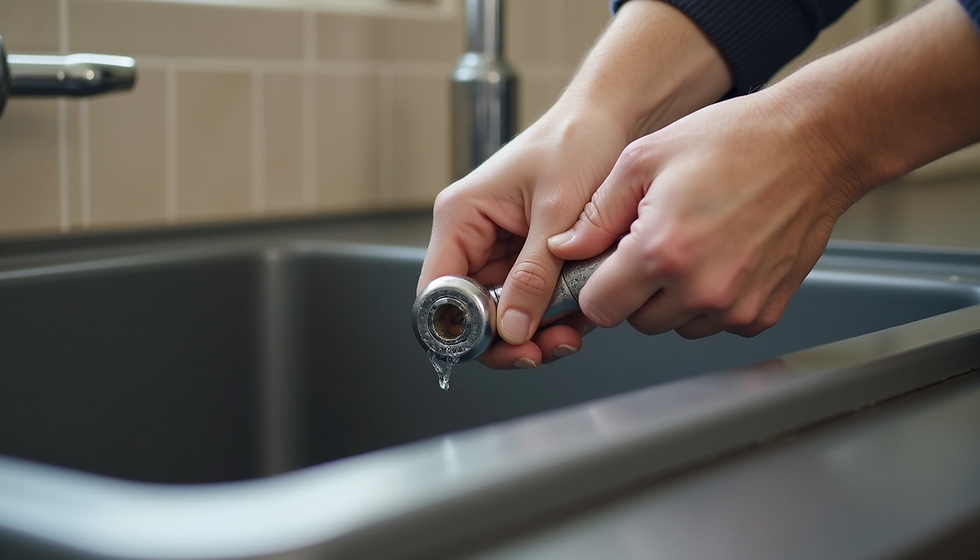Top Tips for DIY Plumbing Repairs
- Mr. Pipey
- Jun 19
- 2 min read
When it comes to maintaining your home, plumbing issues can be quite a headache. As a homeowner or renter, knowing how to handle basic plumbing repairs can save you time and money. While some plumbing problems may require the expertise of a professional plumber, there are several DIY tasks you can tackle on your own. Here are some top tips for DIY plumbing repairs that can help you keep your plumbing in tip-top shape.

Know Your Limits: Before you start any DIY plumbing repair, it's essential to know your limits. If a plumbing task seems too complex or out of your comfort zone, it's best to call a professional plumber. Attempting repairs beyond your skill level could potentially make the problem worse and result in more costly repairs down the line.
Invest in Quality Tools: Having the right tools for the job is crucial when it comes to DIY plumbing repairs. Make sure you have a basic toolkit that includes a wrench, pliers, pipe cutter, pipe wrench, plumber's tape, and a plunger. Investing in quality tools will not only make the job easier but also ensure that you can tackle future plumbing tasks with ease.
Clear Clogs Safely: Clogged drains are a common plumbing issue that can often be resolved without calling a plumber. To clear a clog safely, avoid using harsh chemical drain cleaners that can damage your pipes. Instead, try using a plunger or a plumbing snake to dislodge the blockage. For stubborn clogs, consider using a natural solution such as a mixture of baking soda and vinegar.
Inspect for Leaks: Regularly inspecting your plumbing system for leaks can help you catch potential problems early. Check for water stains, mold, or musty odors, as these can indicate a hidden leak. If you notice any signs of a leak, it's essential to address the issue promptly to prevent water damage and mold growth.
Maintain Your Water Heater: Fluctuating water temperatures or strange noises coming from your water heater can be signs of a potential issue. To maintain your water heater, flush it regularly to remove sediment buildup and ensure optimal performance. If you're unsure how to flush your water heater safely, consult the manufacturer's instructions or seek guidance from a professional plumber. By following these top tips for DIY plumbing repairs, you can become more confident in handling basic plumbing tasks around your home. Remember, it's always important to prioritize safety and know when to call a professional plumber for more complex issues. With a bit of knowledge and the right tools, you can tackle minor plumbing repairs with ease and keep your plumbing system running smoothly.



Comments